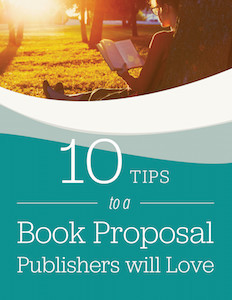
Ready to Write the Competing Books Section of Your Proposal?
After reading dozens of book proposals and having dozens of client book proposals accepted by agents and publishers, I’ve noticed that the competing books section is just hard for people and they often need help with it before they get it right.
Common Errors in Choosing and Comparing Books
One common error is comparing your book to books that didn’t do very well. Another is comparing your book to bestsellers and finding flaws with the bestsellers. Another is saying lots about the competitive or complementary books without comparing to your own. Focus on comparisons to complimentary and competing books.
One other error is including very old books. And by very old, I don’t really mean very old! Publishers want to see mostly books published in the past 2-3 years. Sometimes five is okay if it’s still selling well. If a book is still on the bestseller lists, you’re good, too.
Think Like and Agent or Acquisitions Editor
Here is what you want to keep in mind: the agent or publisher reading your proposal is most interested in 1 thing: will your book sell well? Sure, they also want it to be a book they feel passionate about and will enjoy working on, but ultimately they are most concerned with book sales. Numbers, of course, are relative. For certain publishers “sells well” means over 100,000 books and for a smaller publisher it may mean 10,000 books.
So, you want them to read this section of your book proposal and say, “Wow, I think this book will be a bestseller!” or “Wow, there is a big audience for this book and I can see that books for this audience sell well and this particular book is fresh or unique or offers a fresh perspective or adds something that’s missing from the books that are out there on the subject.” Show that you understand the marketplace in which your book will compete.
You want to compare your books to other books that sold very well in that category. Demonstrate that your book has things in common with those bestsellers (or books that have done very well) and that it has some freshness or uniqueness. That’s it.
Don’t bother with books that sold very few copies. You don’t want to put poor book sales in the mind of the editor or agent.
Another Comps Section Tip
I’m updating this post because I saw a great tip on Twitter today (3/29/23) from my colleague Jane Friedman. Jane suggested using ChatGPT to find comp titles. She shared, “I came up with one blockbuster title that I considered a comp, and asked it to come up with more.”
Be Succinct.
There are other places in the proposal to let your beautiful prose shine through and say more about your book. Here, in the competing book section, I would be succinct. Compare the books on audience, tone, voice, content (what’s new or different), length, accessibility, and anything else that seems relevant. I generally try to have at least one thing that is similar (or why would I be comparing them) and one that’s different. Several in each can be ideal.

If your book is different from all the books in one particular way, you may just want to emphasize it before the list of books compared rather than one by one. And if you can group several competing books together and address them as one in comparing to your book, that’s fine. Generally, I aim for 5-7 books in this section. If more, I try to group them rather than compare them all individually.
Get my free ebook: 10 Tips to a Book Proposal Publishers Will Love.
Do you have questions about how to write a book proposal? Anything specific about how to write the competing books section of a book proposal? Feel free to ask here.

